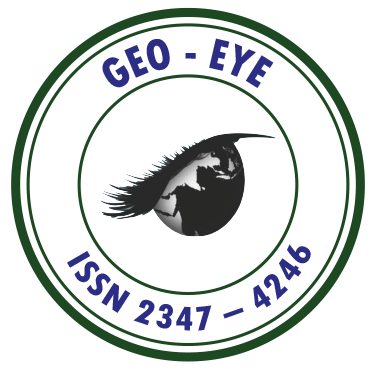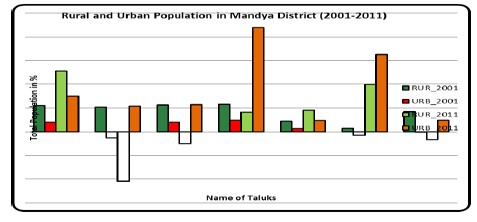
Geo-Eye
Department of Geography & GIS

Department of Geography & GIS

Geo-Eye
Year: 2022, Volume: 11, Issue: 1, Pages: 1-5
Original Article
V Minutha1,*, R Ramya1, P Jayashree2
1 Guest Faculty, Department of Studies in Geography, University of Mysore, Mysuru, 570006, Karnataka, India
2 Professor, Department of Studies in Geography, University of Mysore, Mysuru, 570006, Karnataka, India
*Corresponding author email: [email protected]
Received Date:15 February 2022, Accepted Date:28 May 2022
Population is an essentially required for economic development of the country, but it should not be optimum in relation to the availability of natural resources. Population growth varies from one region to another. The rapid growth has created many problems. Population growth is an index of its economic development, social awakening, cultural background, and historical events. In this paper an attempt has been made to analyze the growth aspects and all the components and structure of population in Mandya District. The comparisons are summarized here for two periods i.e., 2001 and 2011. The present study is based on Secondary source of Data. The Secondary data related to population are collected from Census office Bangalore, District Census handbook and other various sources of secondary data. The Base Map of study area has been Geo-referenced and digitized using GIS Software. Data is analyzed through simple quantitative techniques like percentage index method. The results show that in the two decades trend of population was gradually increasing in the district, but it varies from one taluk to another.
Keywords
Availability, Population Growth, GIS, Social awakening
© 2022 Minutha et al. This is an open-access article distributed under the terms of the Creative Commons Attribution License, which permits unrestricted use, distribution, and reproduction in any medium, provided the original author and source are credited.
Published By Bangalore University, Bengaluru, Karnataka
Subscribe now for latest articles and news.